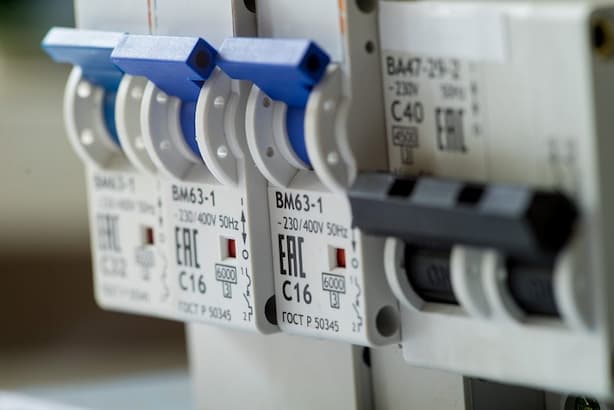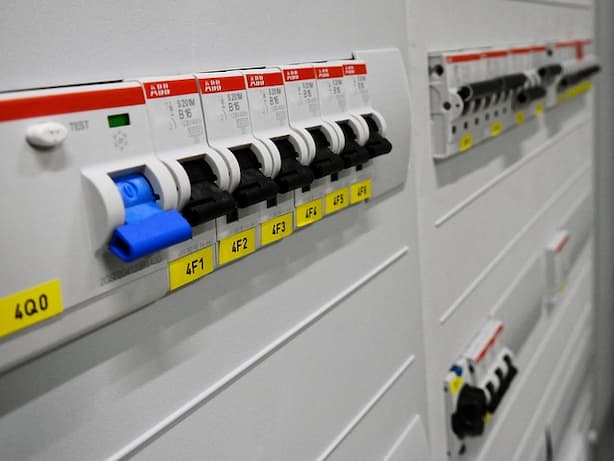Guardians of Safety: Understanding Circuit Breakers and Ensuring Electrical Well-being
In the modern age, electricity is the lifeblood of our daily lives, powering everything from our homes to our workplaces. However, the convenience and comfort that electricity brings also come with the responsibility of ensuring electrical safety. Among the unsung heroes of electrical safety are circuit breakers – essential devices that protect us from potential hazards and ensure the smooth functioning of our electrical systems. In this exploration, we delve into the significance of circuit breakers, their importance in safeguarding electrical systems, how they operate, how to identify faulty ones, when to replace them, and the considerations for choosing suitable replacements.
Contents
Understanding the Importance of Circuit Breakers

Circuit breakers are pivotal to maintaining electrical safety by preventing overloads and short circuits. Their primary function is to interrupt the flow of electricity in a circuit when it exceeds safe levels, thereby preventing overheating, fires, and damage to electrical devices. Think of them as the guardians of your electrical system, swiftly intervening to protect you from potential hazards.
The Mechanics of Circuit Breakers
A circuit breaker operates on a simple yet effective principle. They consist of a switch mechanism and a tripping mechanism. When the electrical current exceeds safe limits, the tripping mechanism is activated, causing the switch to open and interrupt the circuit. This action immediately stops the flow of electricity, preventing any further damage or danger.
Spotting Faulty Circuit Breakers
Faulty circuit breakers can compromise electrical safety. Here are some signs to watch out for:
- Frequent Tripping: If a circuit breaker trips frequently, it might indicate an overload, faulty wiring, or a malfunctioning breaker itself.
- Physical Damage: Any visible damage, such as cracks or scorch marks, on the circuit breaker should be addressed promptly.
- Unusual Sounds or Smells: If you hear buzzing or popping sounds coming from the breaker panel or notice a burning smell, it’s a red flag that something is amiss.
- Hot to the Touch: A circuit breaker that feels unusually hot to the touch could indicate overheating, signalling potential trouble.
When to Replace Circuit Breakers

Knowing when to replace a circuit breaker is crucial for maintaining electrical safety:
- Age: Circuit breakers have a lifespan. If your circuit breakers are older, it might be time to consider replacing them.
- Frequent Tripping: If a breaker trips frequently and isn’t due to a temporary overload, it’s a sign that the breaker itself might be faulty.
- Physical Damage: Any visible damage should prompt immediate replacement to prevent further issues.
Choosing Suitable Replacement Circuit Breakers
When selecting replacement circuit breakers, consider the following factors:
- Type: There are different types of circuit breakers, including standard, GFCI (Ground Fault Circuit Interrupter), and AFCI (Arc Fault Circuit Interrupter). Choose the type that’s appropriate for the specific circuit and area.
- Amperage Rating: The amperage rating of the replacement breaker should match the original. Choosing a breaker with the wrong rating can lead to safety hazards.
- Compatibility: Ensure the new breaker is compatible with the brand and model of your electrical panel.
- Quality: Invest in high-quality replacement circuit breakers from reputable manufacturers to ensure safety and longevity.
- Professional Installation: Unless you have experience with electrical work, it’s recommended to have replacement circuit breakers installed by a licensed electrician to ensure proper installation and safety.
Conclusion: A Secure Electrical Landscape with Circuit Breakers at the Helm
In the realm of electrical safety, circuit breakers stand as silent sentinels that shield us from potential hazards, ensuring the stability and security of our electrical systems. Their role in preventing overloads, short circuits, and potential fires is indispensable, making them an integral part of our modern lives. Recognizing the signs of faulty circuit breakers, understanding when replacements are necessary, and making informed choices when selecting replacements are all essential aspects of maintaining a safe and reliable electrical environment.
As we continue to rely on electricity for various aspects of our lives, it’s crucial to respect the role that circuit breakers play in keeping us safe. Regular inspections, prompt action when signs of trouble arise, and professional expertise when it comes to installation and replacement are all steps toward ensuring the integrity of our electrical systems. By embracing a proactive approach to electrical safety and recognizing the vital importance of circuit breakers, we can navigate the electrified landscape with confidence and peace of mind.






